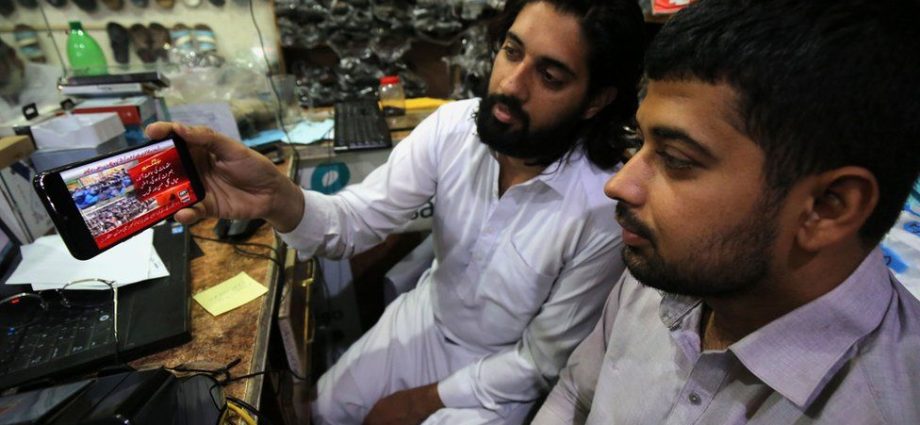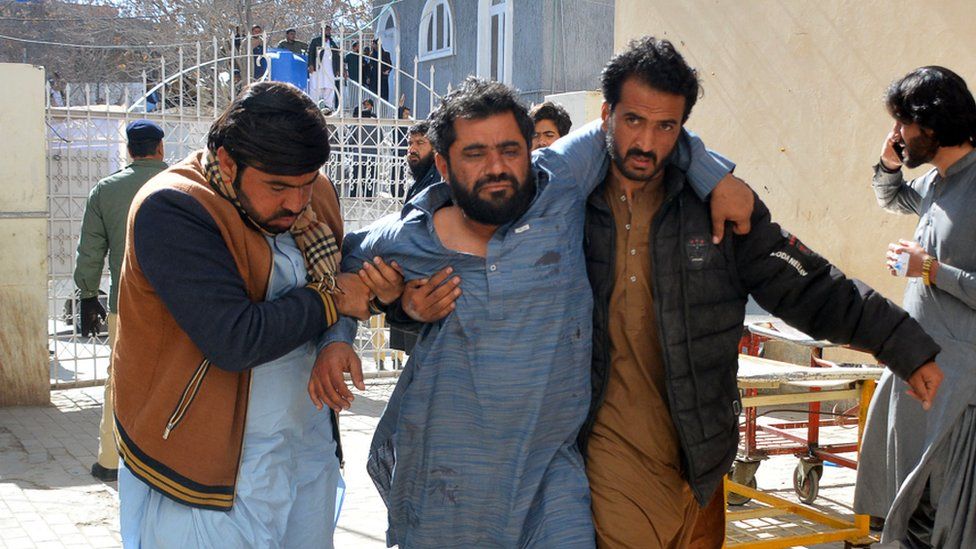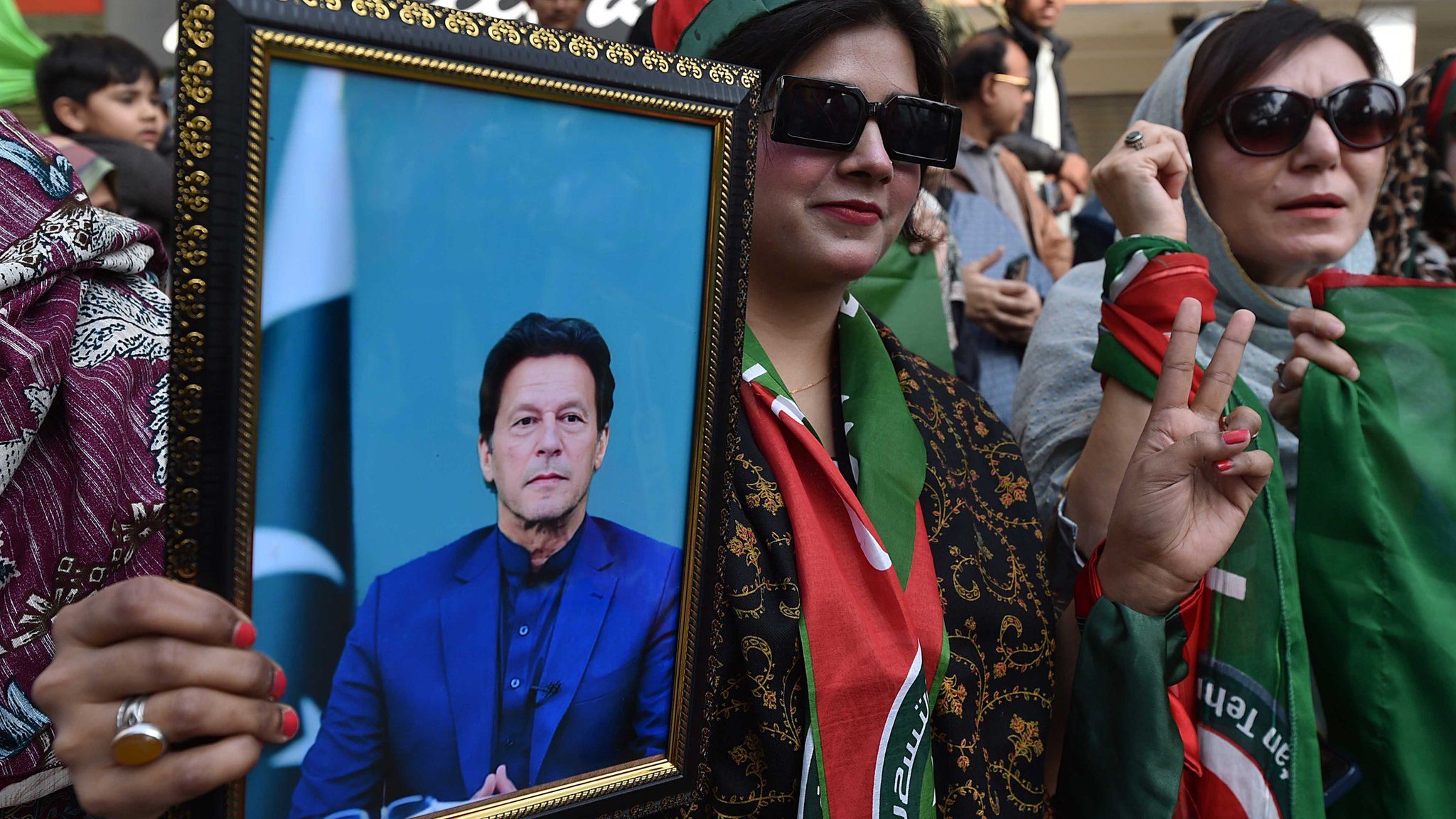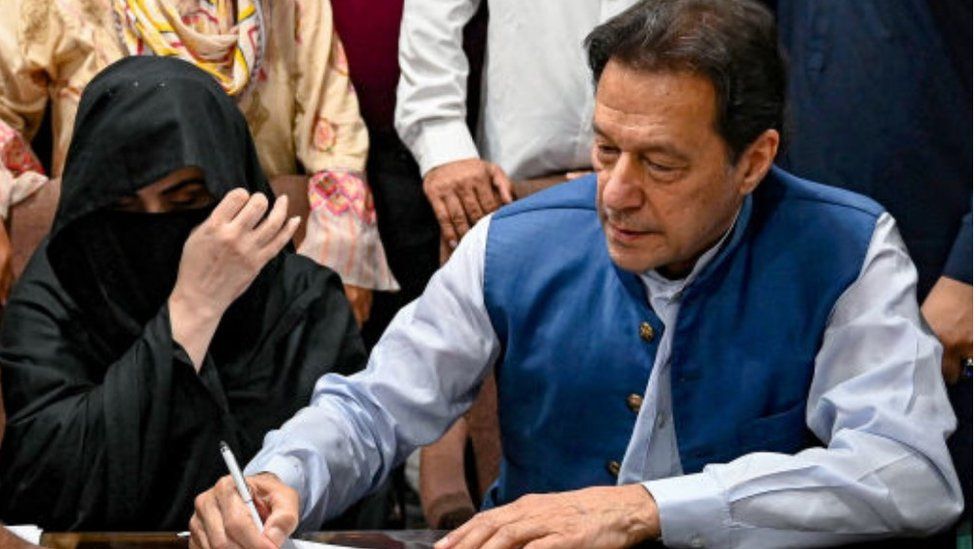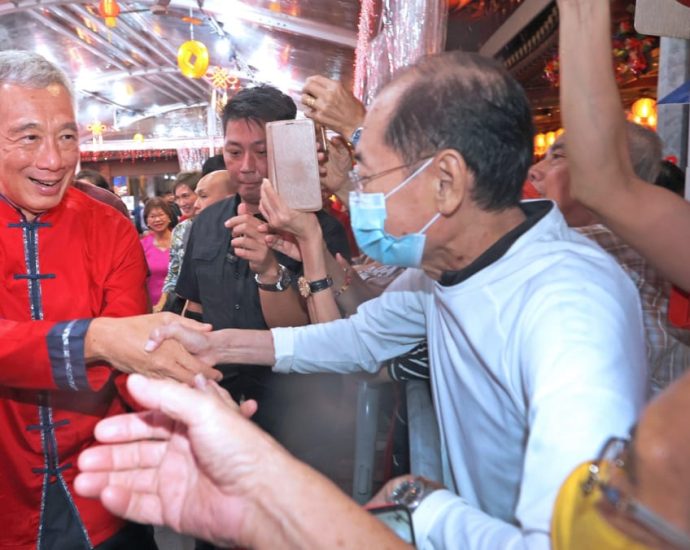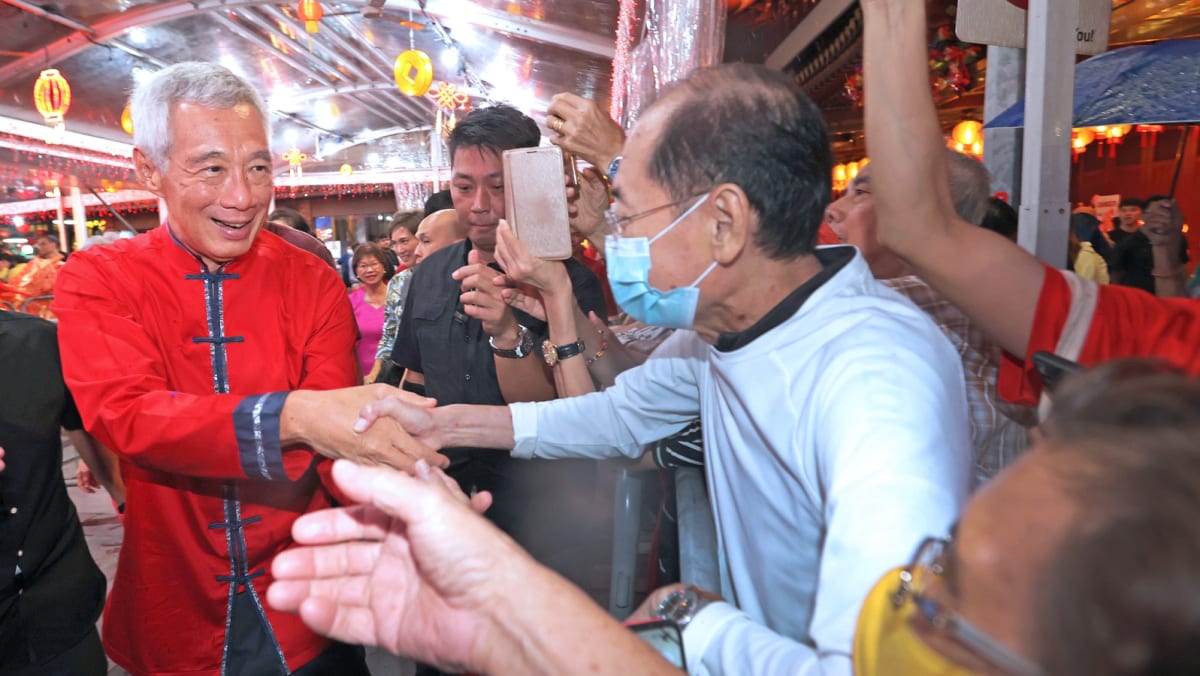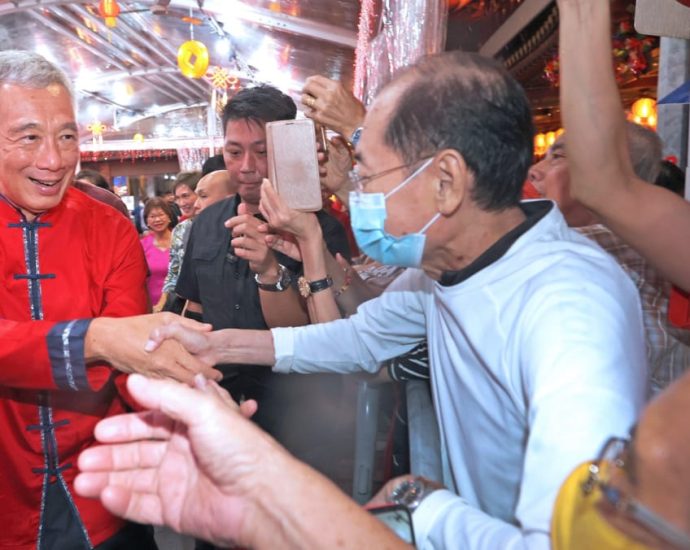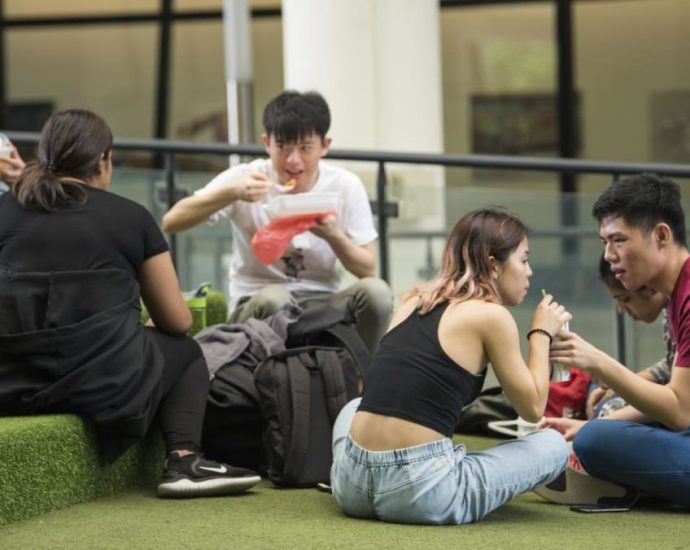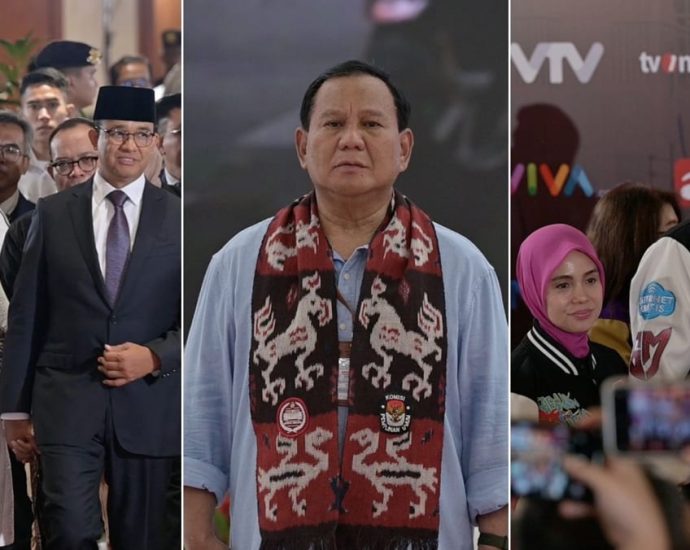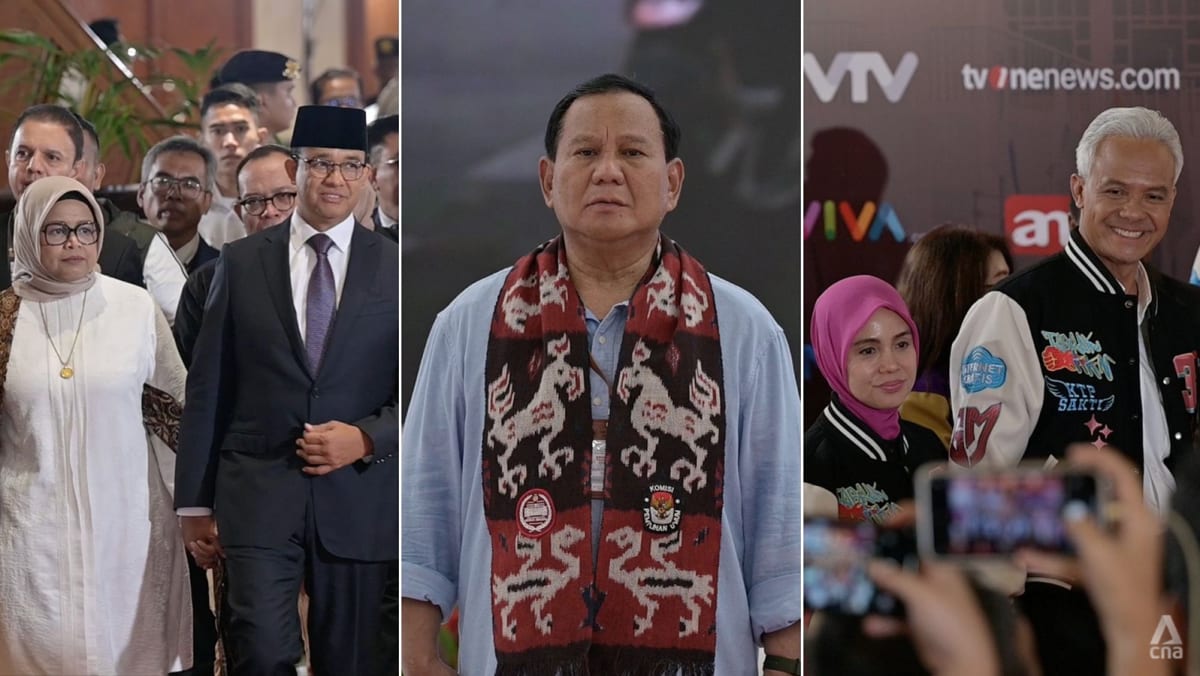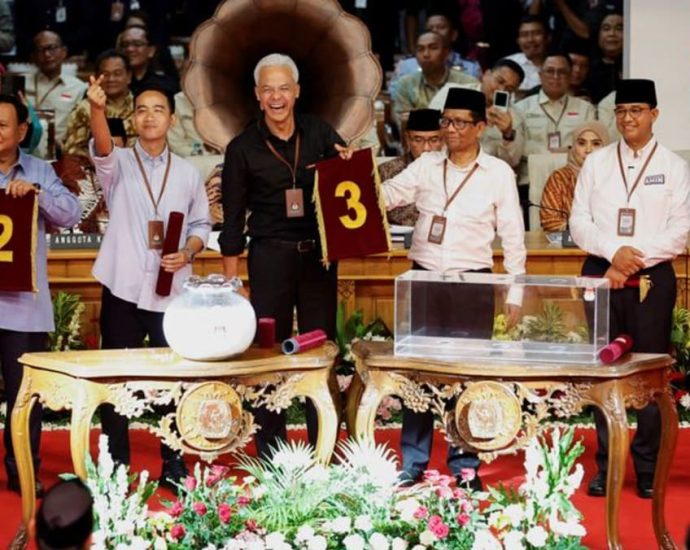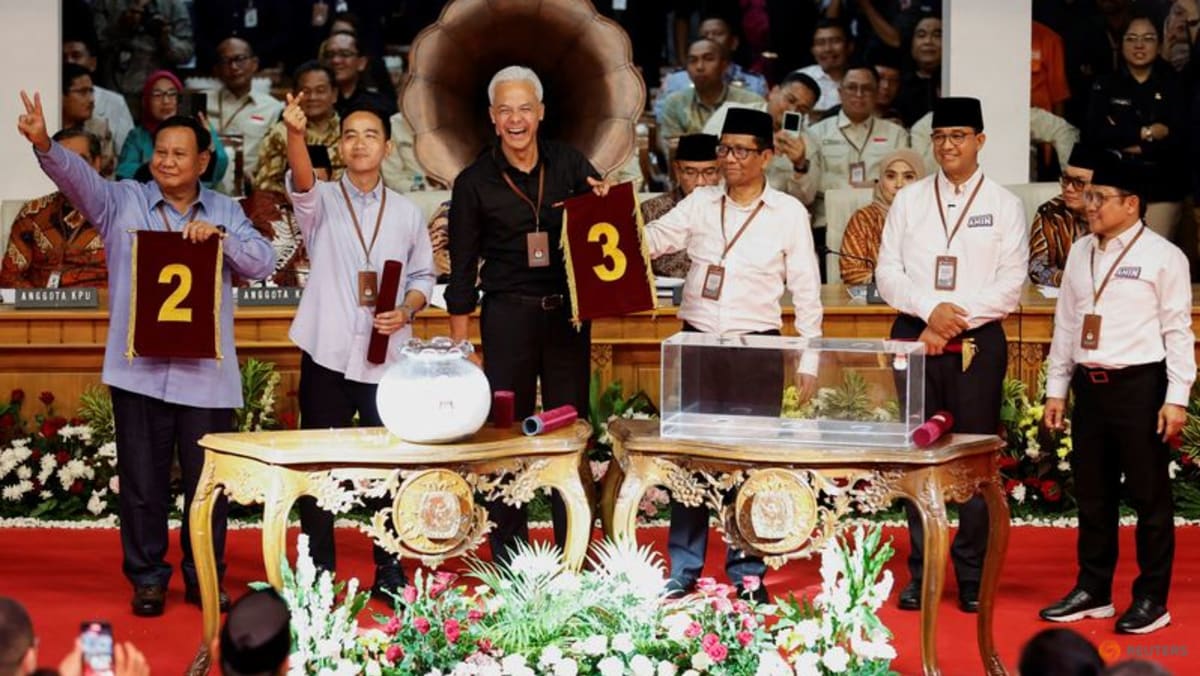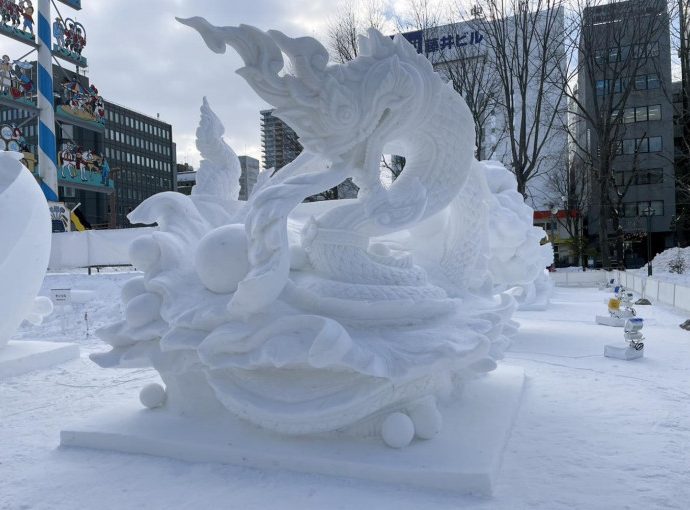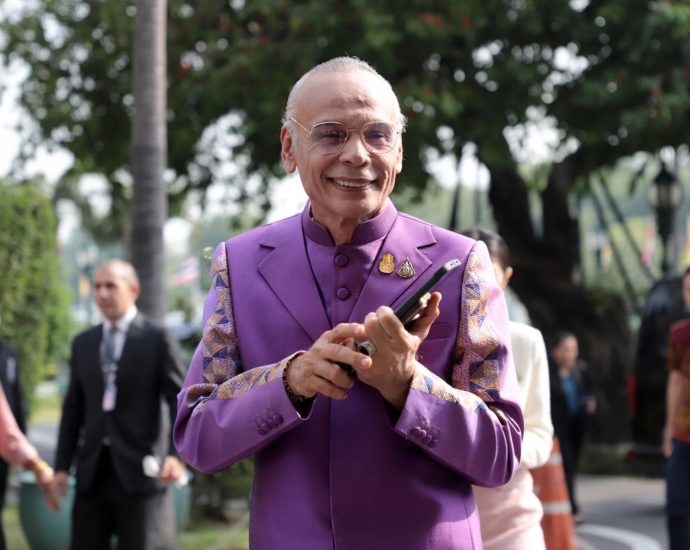Pakistan elections 2024: Count under way after controversial election
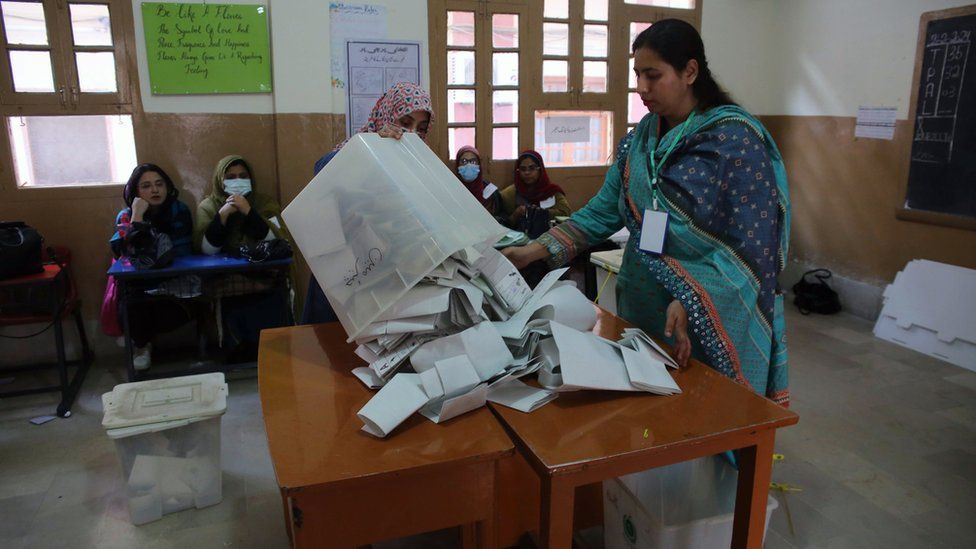 EPA
EPAVotes are being counted in Pakistan after Thursday’s general election which was marred by the suspension of mobile phone services and violent unrest.
Results have been slow to come out, prompting election officials to warn local officials to speed up the process.
The party of disqualified and jailed ex-PM Imran Khan says the delay is a sign of vote-rigging.
Khan’s supporters are challenging the party of another ex-PM, Nawaz Sharif.
Many analysts say this is among Pakistan’s least credible elections.
Khan was ousted two years ago in a no-confidence vote and replaced as prime minister by Mr Sharif’s younger brother Shehbaz, who is president of his Pakistan Muslim League Nawaz party (PML-N).
Jailed on corruption charges last year, Khan was barred from standing in Thursday’s election and his party, Pakistan Tehreek-e-Insaf (PTI), called the internet cut a “cowardly act” as voters struggled to find their polling stations.
The government said services had been suspended because of attacks aimed at disrupting the vote which, the military says, left at least nine people dead.
Both calls and data services were suspended just 10 minutes before voting started on Thursday although wifi networks still appeared to be working.
One voter told the BBC they had been shocked at the decision, saying “voters should be facilitated instead of [having to be met with] such hurdles”.
Another said she had been expecting a blanket shutdown. Many voters in the city of Lahore told the BBC that the internet blackout meant it was not possible to book taxis to go and vote, while others said they had been unable to chat to other family members to co-ordinate when to head to polling stations.
Pakistan has a history of militant attacks but over voting day there were only isolated incidents of violence. In the worst, in Dera Ismail Khan in the north, four police officials were killed in a bomb attack on their vehicle.
The shutdown was also criticised by Pakistan People’s Party (PPP) leader Bilawal Bhutto Zardari, son of assassinated ex-Prime Minister Benazir Bhutto, who called for services to be restored “immediately”.
The country has in the past cut internet services to control the flow of information – though a shutdown of this extent is unprecedented, especially during an election.
As many as 128 million people were registered to cast their votes, almost half of whom were under the age of 35. More than 5,000 candidates – of whom just 313 are women – contested 266 directly elected seats in the 336-member National Assembly.
While PML-N and the PPP were considered the two major parties going into the vote, picking out candidates from Khan’s PTI was more difficult, after it was banned from using the cricket bat symbol under which all its candidates run.
The move forced PTI-backed candidates, who were running as independents, to use other symbols instead, including calculators, electric heaters and dice. Electoral symbols play a key role in a country where more than 40% are unable to read.

The PTI allege other tactics were also used to prevent their candidates from campaigning for and winning seats, including locking up PTI members and supporters and banning them from holding rallies, effectively forcing them underground.
Imran Khan is serving at least 14 years in prison, having been sentenced in three separate cases in the space of five days last week. The PTI alleges interference by Pakistan’s powerful military, with whom Khan is said to have fallen out before his ousting and imprisonment.
But people were able to vote for Nawaz Sharif, the PML-N leader who at the time of the last election was beginning a sentence for corruption.
Mr Sharif was ousted in a 1999 military coup and had a third term as prime minister cut short in 2017 but he recently returned from self-imposed exile.
He had his lifetime ban on holding office overturned and also got his criminal record wiped clean at the end of last year, allowing him to stand for what would be a record fourth term.
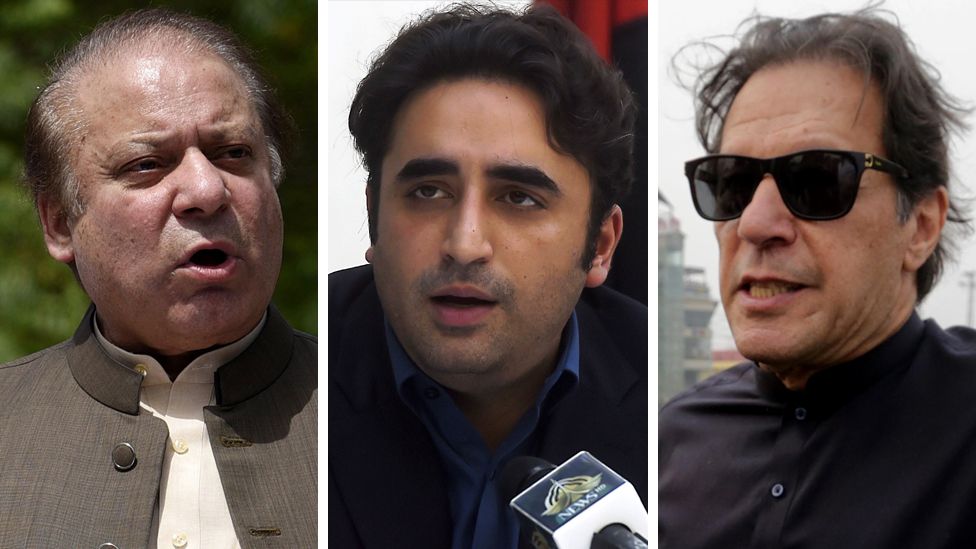
Millions have been hit hard by the country’s economic woes, which were exacerbated by devastating floods in 2022. Inflation is soaring, and people are struggling to pay their bills. Violence is also on the rise.
According to the Islamabad-based Center for Research and Security Studies (CRSS), 2023 also saw violent incidents increase for the third year in a row in Pakistan, with the most recorded fatalities – including security forces, militants and civilians – since 2017.
Related Topics
-
-
12 May 2023
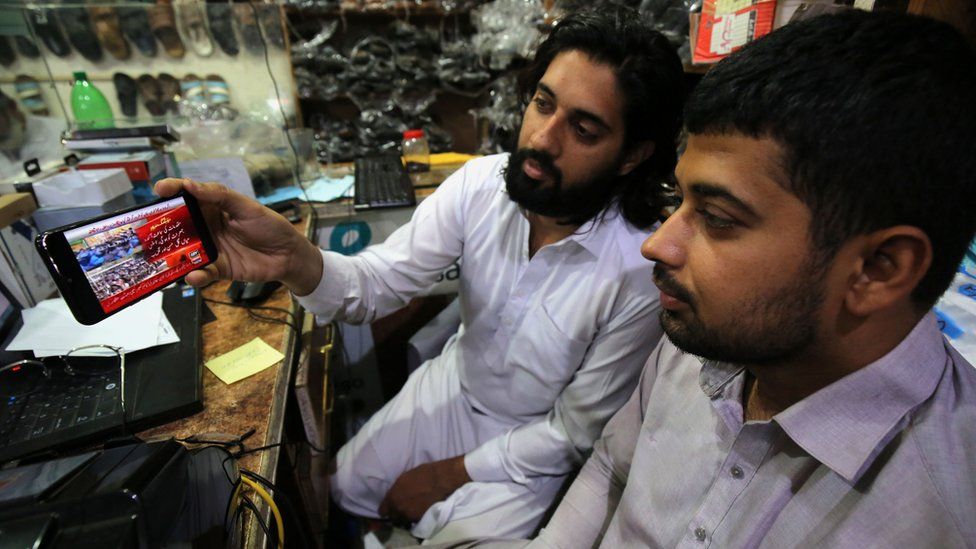
-

